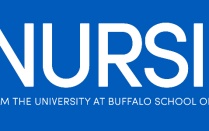Stepping Up

Clinical Assistant Professor Cheryl Spulecki provides hands-on experience for nurse anesthetist students in the School of Nursing's simulation labs
Published August 11, 2017 This content is archived.
Incoming NYSANA President Cheryl Spulecki Balances Educator, Care Provider, Advocate Roles
1. How do your multiple professional roles inform your practice, teaching and advocacy? Is one more important than another?
The multiple hats I wear have a synergistic effect on my roles and professional responsibilities. As an educator, I meet and collaborate with other university professors in academic health care schools. In clinical practice, I interface with surgeons, nurses, APRNs, physician assistants, medical doctors and hospital administrators. My leadership role at NYSANA enables me to communicate with lawmakers, congressional representatives, senators, legislative aides and the community at large. These constituency groups are important to nursing.
2. What initiatives do you see taking precedence over the next few years?
NYSANA will focus on the continued initiatives of educating our lawmakers of the need for title protection of “Certified Registered Nurse Anesthetist” and the designation "CRNA” to ensure that only those properly educated to be CRNAs be allowed to provide specialized care. Other important initiatives we hope to move forward are codification of nurse anesthetist practice as an advanced nursing specialty and gaining prescriptive authority during the peri-operative period. This would require CRNAs to complete a program approved by the NY State Education Department. On the federal level, we are advocating for full practice authority to ensure veterans have access to high quality health care.
3. Why is it important that students be actively engaged in a professional organization?
Professional engagement allows for personal and professional growth and exposure to thought leaders who work on process and policymaking. Students can initiate involvement by attending local, state or national organization meetings to learn about other student members’ experiences and research project interests.
Our curriculum reinforces the value of safe, cost-effective and qualified anesthesia provider care. Students are taught it is their responsibility to keep current with proposed initiatives and legislation that influence practice. Being proactive is paramount to protecting and strengthening the profession to maintain success and growth.
4. How do you juggle your roles in education, CRNA clinical practice and NYSANA leadership?
With painstaking organization! Having a supportive family who understands my unrelenting passion for my profession also helps. I work my clinical practice and NYSANA responsibilities around my university schedule, using weekends and nights for conference calls, meetings, educational forums, clinical hours and call shifts.
My clinical practice experiences play an important role in my approach to didactic content for instruction. Our faculty have a responsibility to make classroom instruction evidence-based, relevant to the day-to-day activities, and representative of what students encounter in clinical practica. Case studies based on real-life situations illustrate best practices that are crucial to safe, quality care.
The NYSANA leadership opportunity came at a time when I wanted to take on a new challenge and become more involved with the organization. Everyone I met through years of volunteering with NYSANA inspired me. I never think of any of my roles as a job or requirement; they are an extension of who I am as a professional.
5. What lessons would you like to share with students and alumni who are contemplating taking on more professional responsibilities?
Life has a way of letting you know when you have taken on too much and are overwhelmed, when you are content and comfortable, and when you are at a point where you can do more. Outstanding mentors, excellent preceptors and experienced colleagues have provided encouragement throughout my career. I am fortunate to work with exceptional students who are eager to learn.
I tell them to remember why they are here and not forget where they started. Cliché but true.
Past Issues
We want to hear from our incredible alumni. Whether you live in Western New York or anywhere else in the world, stay in touch! Send us a class note.

